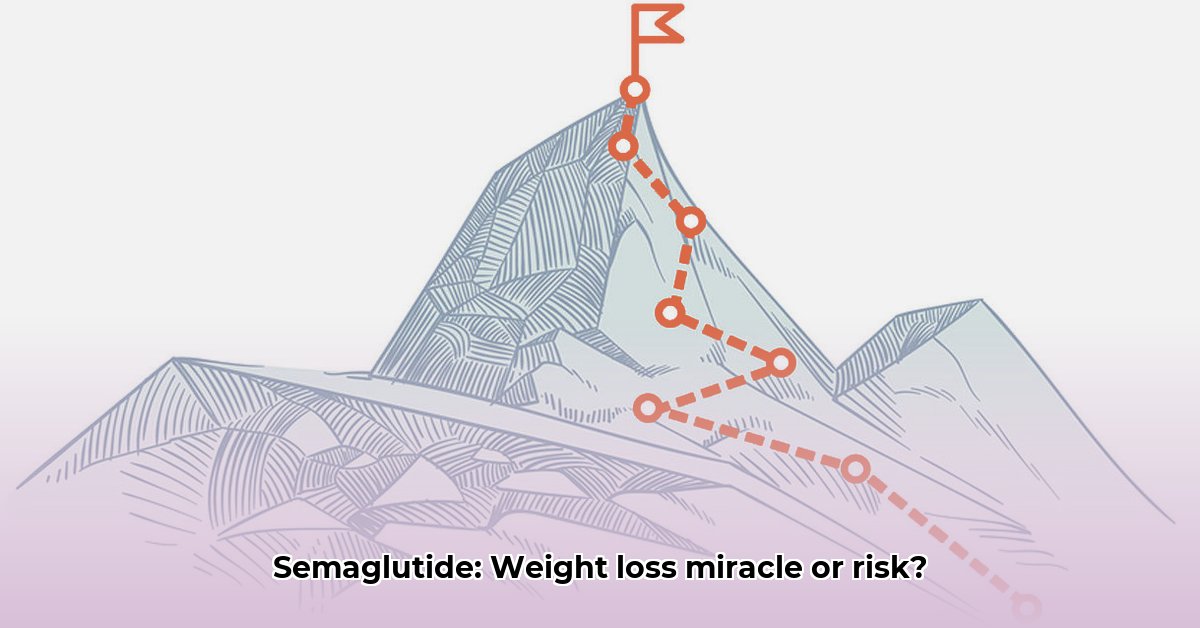
Understanding Semaglutide for Weight Loss in Lexington, SC
Thinking about losing weight in Lexington, SC? Semaglutide, a medication increasingly used for weight management, might be an option to discuss with your doctor. This article provides information about semaglutide to help you have a more informed conversation with your healthcare provider. However, this information is for educational purposes only and should not replace professional medical advice. Always consult your physician before starting any new medication or treatment.
How Semaglutide Works
Semaglutide mimics a naturally occurring hormone in your body that regulates appetite and how your body processes food. By slowing digestion and increasing feelings of fullness, it can lead to reduced calorie intake and weight loss. It's not a quick fix, but a tool to support healthier eating habits. Are you ready to learn more about how this medication can help you achieve your weight loss goals?
Benefits of Semaglutide for Weight Management
While individual results vary, many people using semaglutide report significant weight loss. Other potential benefits include improved blood sugar control (especially beneficial for those with type 2 diabetes) and a possible reduction in heart disease risk. However, more research is needed to confirm the latter. Is this medication the right fit for your needs, and what are the possible drawbacks?
Risks and Side Effects of Semaglutide
Like any medication, semaglutide carries potential side effects. It's crucial to understand these risks before considering treatment.
Common Side Effects (Generally Mild):
- Nausea
- Diarrhea
- Constipation
- Vomiting
- Indigestion
- Abdominal pain
These are often most pronounced at the start of treatment and tend to lessen over time.
More Serious Side Effects (Less Frequent):
- Pancreatitis (inflammation of the pancreas)
- Gallbladder problems
- Increased risk of suicidal thoughts or behaviors (rare but serious)
- Kidney problems
- Hypoglycemia (low blood sugar, particularly a concern for diabetics)
- Allergic reactions
- Changes in heart rate
Risk Assessment Matrix:
| Risk Factor | Probability | Severity |
|---|---|---|
| Gastrointestinal problems | High | Low-Moderate |
| Pancreatitis | Low | High |
| Gallbladder problems | Low | Moderate |
| Suicidal thoughts/behaviors | Very Low | Very High |
| Kidney issues | Low-Moderate | Moderate-High |
Note: These probabilities are estimates. Your individual risk profile will be assessed by your doctor.
Who is a Good Candidate for Semaglutide?
Your doctor will consider several factors to determine if semaglutide is right for you. These include your BMI, pre-existing health conditions (such as kidney or pancreatic issues), other medications you are taking, and whether you are pregnant or breastfeeding (semaglutide is not recommended during pregnancy or breastfeeding). Open communication with your doctor is vital. What are some alternative weight loss strategies you might consider?
What to Expect During Semaglutide Treatment
Treatment usually involves regular injections and follow-up appointments with your doctor to monitor your progress and address any side effects. Regular monitoring is essential for safety and effectiveness.
Alternatives to Semaglutide
Semaglutide isn't the only path to weight loss. A balanced diet, regular exercise, and stress management techniques are also crucial components of a successful weight management plan. Other weight loss options, including different medications or surgical procedures, may be suitable depending on your individual circumstances. Your healthcare provider can help make the decision that's right for you. This is a journey that requires collaboration.
Conclusion: Partnering with Your Doctor for Weight Loss Success
Semaglutide offers potential benefits for weight loss, but understanding its risks and side effects is crucial. This information is solely for educational purposes and shouldn't replace a conversation with your doctor. Partner with your healthcare provider to determine the best approach for your weight loss journey. Remember, sustainable weight loss is a collaborative effort.
Disclaimer
The information provided in this article is intended for general knowledge and informational purposes only, and does not constitute medical advice. It is essential to consult with a qualified healthcare professional for any health concerns or before making any decisions related to your health or treatment. The information provided here should not be considered a substitute for professional medical advice, diagnosis, or treatment. Always seek the advice of your physician or other qualified health provider with any questions you may have regarding a medical condition. Never disregard professional medical advice or delay in seeking it because of something you have read in this article.